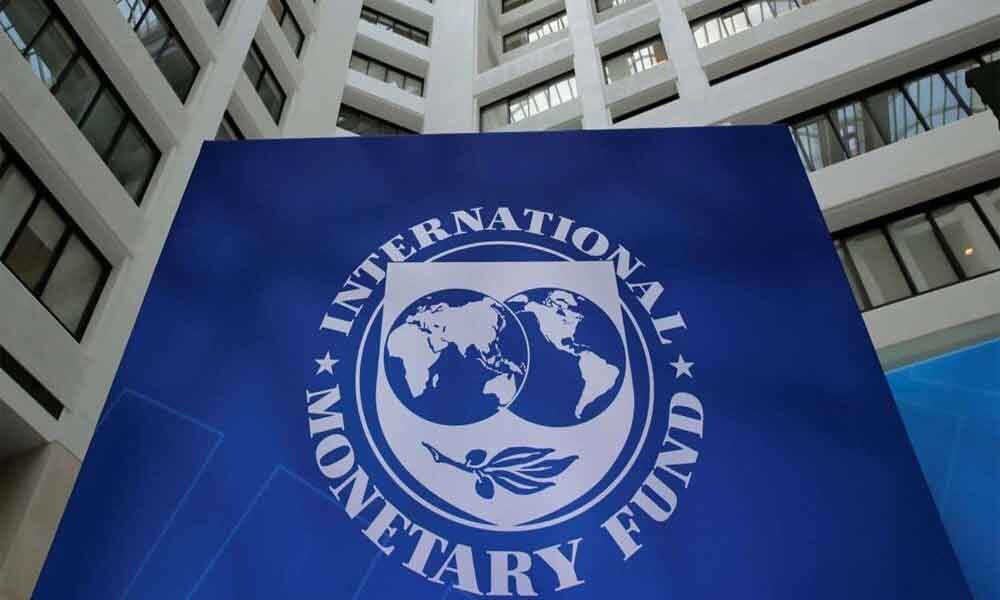Live
- Assam only state to see dip in road accidents: CM Sarma
- MP BJP to celebrate former PM Vajpayee's birth anniversary on Dec 25
- Christmas Eve 2024: Heartwarming Messages To Share With Your Loved Ones
- PM Modi holds brainstorming session with economists in run-up to Budget
- “Telangana Ready to Support AI Technologies That Drive Social Impact,” says Special Chief Secy, Jayesh Ranjan at Woxsen University’s Future Tech Summit 2024
- Hero Motosports Team Rally Announces Squad For Dakar Rally 2025
- Two Men Found Dead In Parked Caravan In Kerala
- Mandhana moves closer to top spot in ODI, T20I rankings
- IND vs AUS Boxing Day Test 2024: Sam Konstas Debuts, Travis Head’s Fitness in Question
- Congress Challenges Election Rule Amendments In Supreme Court
Just In
India has been 'poster child' for IMF: Book


India has availed of three fund programmes -- in 1966, 1981 and 1991. All of the three IMF programmes in India were seamlessly implemented, and the moneys were repaid on time, says V Srinivas, Additional Secretary, Department of Administrative Reforms & Public Grievances (DARPG) in his book, "India's Relations with IMF: 25 Years In Perspective - 1991-2016"
New Delhi: India has been a "poster child" for the International Monetary Fund (IMF), as all of the three IMF programmes in India were seamlessly implemented, and the moneys were repaid on time, says a new book on India's relations with the Bretton Woods institution.
"We are a major player, and a founder member of the Fund. And we bring in a lot of credibility," says V Srinivas, Additional Secretary, Department of Administrative Reforms & Public Grievances (DARPG).
In his book, "India's Relations with IMF: 25 Years In Perspective - 1991-2016", the author has detailed many of the interactions between India and the IMF.
Srinivas, who served as Advisor to Executive Director in the IMF from 2003 to 2006 and represented India on the IMF Executive Board in 500 meetings, says: "The IMF is the world's lender of last resort, its approach is multilateral, multicultural, multi-ethnic and above all highly professional - the collective intellectual firepower of macroeconomists the IMF carries is unmatched by any organisation in the world".
India is an original member of the IMF. In 1944, India was represented at the Bretton Woods Conference by a six-member team led by Finance Minister Sir Jeremy Raisman, the Governor of the Reserve Bank of India, Sir C.D. Deshmukh, and A.D. Shroff.
"It was felt that India should lend its support to an institution, which was intended to put an end to the disastrous practices of competitive depreciation of currencies by establishing exchange rates. India's quota was the 5th largest in 1945," says Srinivas.
The author has highlighted the role of IMF as the world's lender of last resort, formulating policies to enable crisis-ridden countries to regain macroeconomic stability.
The book deals with nine major global financial crisis, from the Great Depression to the Great Recession, including the Suez Crisis, the International Debt Crisis, the East Asian Economic Crisis, the Russian Economic Crisis, among others. India has availed of three fund programmes -- in 1966, 1981 and 1991.
"We have had excellent relations with IMF for a nation in South Asia, considering that its relations with Southeast Asian nations like Malaysia and Thailand were extremely bitter.
Post the 1997 Asian financial crisis, these nations felt the fund was extremely tough on them in pushing reforms. They felt the hardships put on their citizens was extremely hard," Srinivas said.
"During all three programmes we've had cordial and constructive relations with the Fund, except in the first one when the aid took some time to materialise.
"In the current context, we are a donor country to IMF, we have the eighth largest quota. Our financial integration with the world is quite rapid in that we have one of the largest financial sectors of the world, and it needs to open up some more," he adds.
Following the 2008-10 global crisis, which the Fund never saw coming, it has now strengthened its ability to predict a financial crisis.
"It has strengthened its surveillance tool kit by enhancing multilateral surveillances, enhancing their spill-over reports, it has started addressing issues for international global collaboration through increased financial sector oversight," he added.
"The subject of my book is that multilateralism is very much relevant, and India is a key player in enhancing global multilateralism. And we need a lender of the last resort, at a time of competitive exchange rates.

© 2024 Hyderabad Media House Limited/The Hans India. All rights reserved. Powered by hocalwire.com






